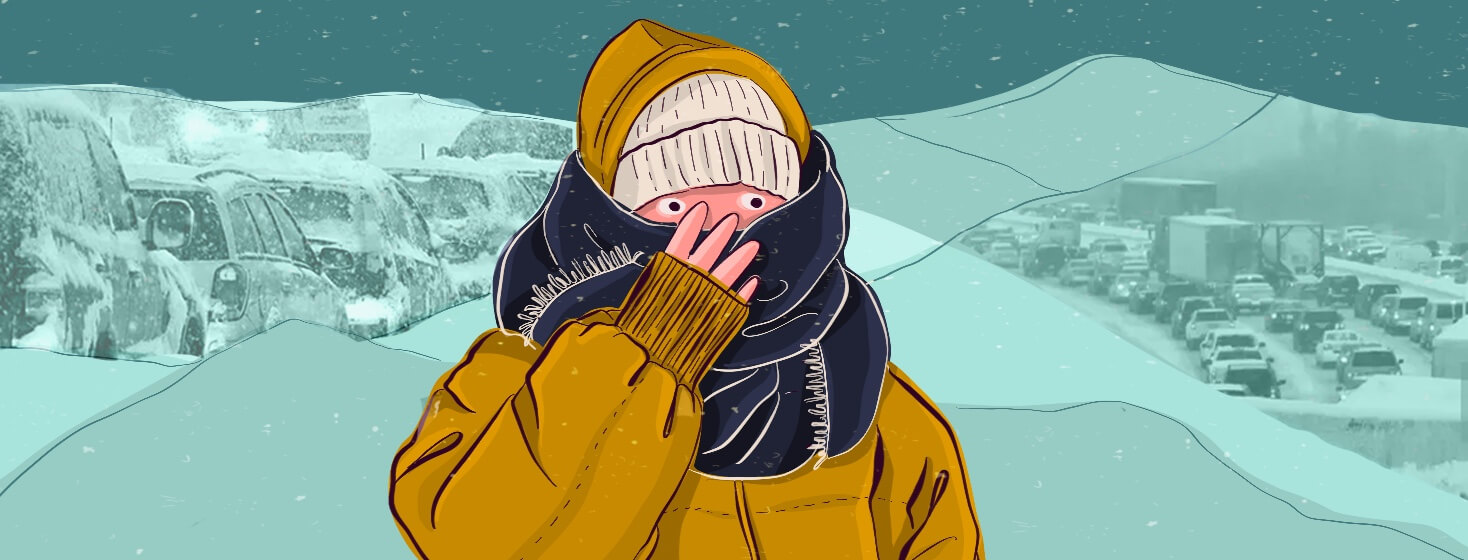Losing My License and Trekking to Work
The first time I slipped my car keys into a drawer for the unforeseeable future was like locking up my independence. I was 25 years old and a car had given me the freedom to drive halfway across the country, then up and down the Oregon coast for work and play. Now the only key I needed belonged to the padlock for my bike.
Having seizures and losing my driver's license
A few seizures 1 weekend in June 2010 took away my ability to drive, but if it had to happen, I admit that Eugene, Oregon was a convenient place. The city is designed for runners and bikers, and a trail sat right around the corner from my house.
My bike carried me to work, rain or shine. The sun blinded my vision in the summer as I pedaled along at an easy pace, careful not to break a sweat. But once winter hit – which is the rainy season on the Oregon coast – I piled on as much rain gear as possible to stay dry.
My boss was gracious in allowing me to work with another reporter who could drive us to interviews, but it was hard to see everyone else simply grab a set of keys and hurry out the door. I realize now how lucky I was to have gotten the accommodations, but standing on the sidelines was upsetting.
A bike commute during mild winters was just a warm-up for my next career move.
When the work commute gets dicey
Fifty-three inches of snow fell the first year I set foot in Grand Rapids, Michigan, with 95 inches the following year, and then 111 inches the next year.
My commute was only a mile, but unlike the smooth bike trails in Eugene, this path was filled with dangerous obstacles. My apartment was tucked back into a quiet, beautiful tree-filled area, and sidewalks took me past Target and Panera Bread before I turned and walked smack dab onto the Interstate 96 overpass. Because my memory is missing a few twists and turns, I pulled up the route on Google maps for a step-by-step tour with pictures.
Heavy traffic filled up the stretch — 2 lanes and a turning lane to on-ramps in each direction. With no median, I walked inside the narrow line separating cars from the bridge's walls. Nobody had room for error. Thankfully, a sidewalk picked up past the ramp. But the opposite side of the overpass didn't have anywhere to walk, so when heading home at night, I had to cross over to the other side and walk against traffic.
Transportation dilemas and weather woes
My coworker worked a different shift, so I couldn't get a ride. Occasionally I took the city bus, but it only ran every 30 minutes in the afternoon and stopped before my shift was over, which was close to midnight. That left me with only one option – my 2 feet. Biking was more dangerous. The quicker I got over that bridge, the better. Dodging drivers was stressful, but I got used to areas that required more caution.
Fall was the perfect temperature for running. Then, snow started falling, creating the perfect conditions to fall flat on my face. Heavy snow boots replaced my light running shoes, and I resorted to taking the bus to work for awhile. The consequence of missing the bus greeted me like a slap in the face.
During snow storms, sleet whipped across my cheeks as I trudged over the icy bridge. With no trees to block the bitter wind, I pulled my wool scarf over my face and squinted to spot cars. My body was desperate to sprint out of the cold.
Losing a license to epilepsy is no fun
Irritation filled drivers' faces as they drove past and lifted a hand off the steering wheel to gesture towards me. No words were needed, their eyes narrowed as if to say, "Why are you walking on an icy overpass? You want to get killed??"
I wanted to shout back, "Do you think I want to be out here? Try having a seizure and getting your license taken away for 6 months!! Gone, just like that." Meeting their gaze would ruin my day, though, so I focused on the ground to dodge ice.
When a coworker learned of my commute, he started picking me up and dropping me off after our shifts. I was so grateful that he carved another 15 minutes out of his day to make my commute safer. His small act of kindness made a huge impact.
Losing a license to epilepsy is definitely not fun. Having the support and understanding from others can really make a difference.

Join the conversation